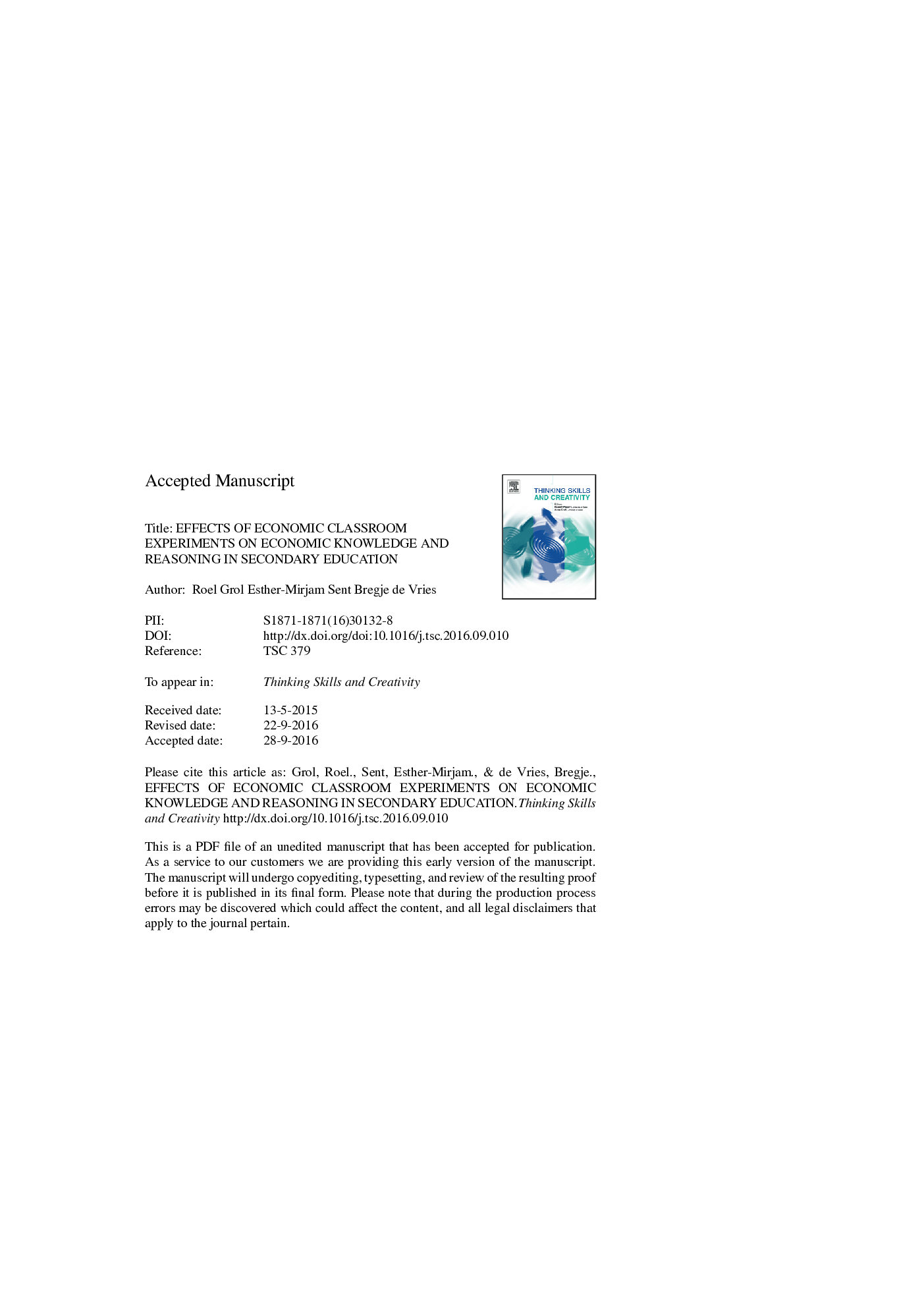| Article ID | Journal | Published Year | Pages | File Type |
|---|---|---|---|---|
| 4941899 | Thinking Skills and Creativity | 2016 | 45 Pages |
Abstract
This study explored whether and how economic classroom experiments may enhance the economic knowledge and the reasoning ability of 108 secondary school students. Economic classroom experiments are controlled interactive learning exercises by means of which students can learn to think as economists. Economic reasoning is conceptualized as the ability to identify a correct cause-and-effect relationship between variables. Students formulate an initial hypothesis by indicating two main variables from an economic context, determining associations between these, and formulating possible explanations. Subsequently, students test their hypothesis and try to establish the accuracy of their initial ideas. From the economic classroom experiments used in the study, students have to derive key variables, determine how these variables were related, and provide explanations. The goal of the study is to investigate whether actually participating in economic classroom experiments (n = 36) is more beneficial to learning than either watching others perform economic classroom experiments (n = 27) or merely analyzing the data produced by other students within such experiments (n = 45). Contrary to expectations, students who observe experiments and students who analyze experimental data show higher and sustained gains in their knowledge of economic concepts than students who participate in the experiments. Moreover, experiment participation turns out to be less beneficial for the reasoning-ability of students than video observation and data analysis. Possible explanations for these findings are discussed.
Keywords
Related Topics
Social Sciences and Humanities
Psychology
Developmental and Educational Psychology
Authors
Roel Grol, -->Esther-Mirjam Sent, Bregje de Vries,
